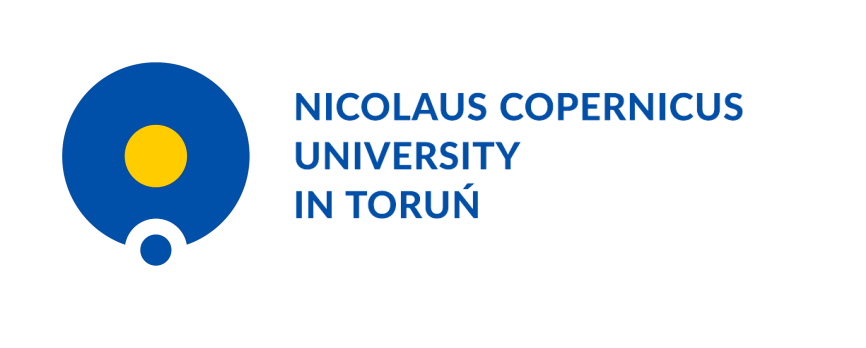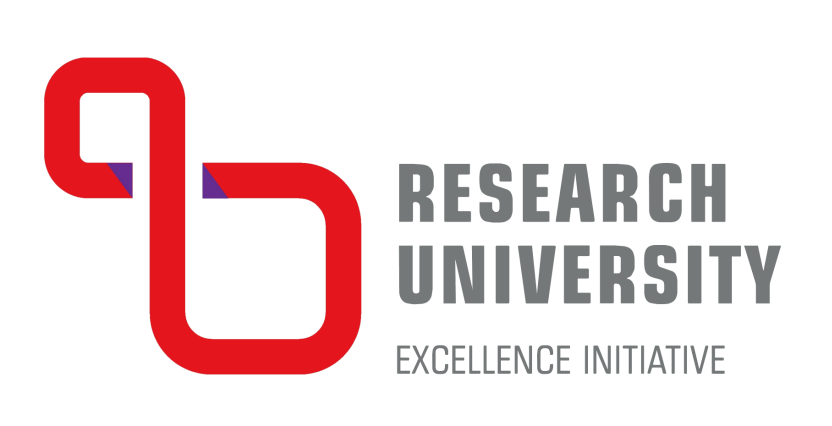Light-ContrOlled Materials For sOft RoboTics (COMFORT)
Light-ContrOlled Materials For sOft RoboTics (COMFORT) – the subject of research covers the following fields: physical sciences, chemical sciences, materials engineering, chemical engineering.
Team leader – dr hab. Beata Derkowska-Zielińska, prof. NCU
Research conducted within the Research Group COMFORT (hereinafter referred to as Group) is interdisciplinary. Using the experience of the members of the Group from the Faculty of Chemistry NCU (WCh NCU) in the synthesis of organic materials, it is planned to prepare new materials containing azobenzene reacting to light. The proposed photoactive materials will be studied by scientists from the Faculty of Physics, Astronomy and Informatics NCU (WFAiIS NCU) using linear and nonlinear optical methods to optimize the properties necessary for the use of such materials in soft robotics (SR).
The newly established Group will develop SR at the Faculty of Physics, Astronomy and Informatics NCU.
Close collaboration is planned between members of the Group from WFAiIS NCU and WCh NCU, as well as close collaboration with existing and new international partners from e.g. Japan, France, Austria, Italy, Slovenia, Slovakia, Czech Republic, Germany and Finland.
Light-ContrOlled Materials For sOft RoboTics (COMFORT)
Recent years brought a significant increase in interest in the development of materials that mimic the abilities found in nature. During evolution, leaving creatures have become highly functional and productive, using environmental stimuli to trigger adaptive behaviors that help species to survive. The best solutions from the nature people replicate mostly using the “hard” robots, where rigid segments limit the adaptability and versatility of devices. In contrary, soft robots fully composed of susceptible polymers, better mimic living organisms with their soft body. In order to free robots from clinging to external or heavy onboard control units, it is necessary to use stimulus-responsive polymers that undergo macroscopic deformation in response to remote triggering. Such responsive materials can convert the energy contained in chemical or physical stimuli into macroscopic deformation. Among many actuators, light gained a lot of interest by being remote, non-destructive and precise activation stimulus. Therefore, many photosensitive materials have been already developed and studied in soft robotics. However, the vast range of possible applications as well as progress in nanotechnology and nanoscience allows fabricating novel materials that can outperform the ones that has been proposed before.
The aim of this research is to establish develop soft robotics (SR) at NCU (i.e. design and study the response of various photoresponsive materials and to optically control their shape change). The first goal (1) is motivated by the need for new materials for SR. The knowledge and expertise of our chemists allows to design new azobenzene-containing light-responsive polymers (ALRP). By changing the concentration of chromophores or groups that are linked to azo functionality in designed photoresponsive materials, the response to illumination can be tuned and optimized. The second goal (2) results from the fact that new materials require detailed analysis. Complementing the available experimental techniques with other tools will be used to better understand the mechanisms of photoactivation and the possibility of using their nonlinear optical (NLO) properties. The third goal (3) is to use designed and optimized materials for demonstration of SR applications.
The Group will deal with:
- design and synthesis of new light-responsive polymers containing azobenzene (azobenzene-containing light-responsive polymers – ALRP) for soft robotics
Based on the experience of the scientists from the Faculty of Chemistry NCU, specializing in the chemistry of chalcogenides, the Group begins their research on highly efficient azo-selenoorganic materials for soft robotics. Unsymmetrical azo-derivatives functionalized with alkyl selenium groups will be obtained through the azo-coupling of 8-hydroxyquinoline with aromatic or aliphatic p-aminophenylselenides (azoselenides). Additional group of unsymmetrical azo-derivatives, containing a selenazole ring, will be synthetized through the azo-coupling of 1,3-selenazol-2-amines with various p-substituted anilines.
The hydoxy group of quinoline, in the structure of the obtained azoselenides, and the primary amine moiety of the selenazole function will be further converted to metacrylic esters and amides, respectively. The unsaturated double bond of the metacrylate function will be used for radical polymerization reaction to obtain the final Se-material. The designed Se-polymers, that combine the light-responsive azo function with the organoselenium scaffold, will be used in soft robotics as azo-materials responsive to light activation (ALRP). - Study of light-controlled materials
The Group will focus on basic and comprehensive studies of optical properties of newly synthesized molecules and study of changes under the influence of light illumination.
It is well known that one of more significant trademarks of azo compound are two forms of azobenzene and its ability for reversible photoisomerization between thermally stable trans state and metastable cis upon light irradiation. The isomerization causes structural changes in azobenzene configuration and significantly affects its spectroscopic, photo-physical and physico-chemical properties. This is the key to the unique optical and photomechanical effects observed in azo-dyes. In order to observe such effect, the material has to absorb light, therefore the knowledge of optical properties plays a key role in tuning the properties of next generations of designed and synthetized molecules.
The actuation of ALRP when exposed to irradiation with polarized light can show through photoreorientation (trans–cis–trans) due to the nearly equivalent absorption of trans and cis isomers at chosen wavelengths. However, it has been shown that such effects are generated by lower strains than the more commonly used trans-cis isomerization. Additionally, the activation of ALRP dyes can cause intermediate deformation states that are temporarily stable, even after removal of illumination, because photochromic dyes remain in light-induced cis state until they return to their initial stable trans state. Such clean photochemistry gives rise to the numerous remarkable photo-switching and photo-responsive behaviors observed in these systems. The latter will be observed by performing surface-relief grating (SRG) experiment, where material is illuminated with two overlapping beams and the dynamics of material modification under the light exposer is probed with third beam. Thus, the exposed material undergoes surface or volume changes what results in creation of grating that diffracts the probe beam.
We also plan to expand the capabilities of SRG experiment by performing all-optical poling (AOP) technique and induce holographic gratings. This method brings the benefit of inducing non-centrosymmetric contributions to molecular ordering. We expect to obtain SRG created in newly synthesized materials. To investigate the nonlinear optical (NLO) response of newly synthesized molecules, Z-scan, third-harmonic generation (THG) and photoinduced birefringence measurements will be used. Z-scan is a technique that allows to measure the magnitude and sign of nonlinear refractive index of material and value of its nonlinear absorption coefficient. A complementary technique to learn about third-order NLO properties is THG, where a laser light of fundamental frequency generates, through nonlinear polarization in material, an optical field at tripled frequency. Based on THG, we can determine purely electronic molecular second hyperpolarizability of material. Generation of optical anisotropy in azo dye-containing materials results from the orientation of azo chromophores induced by linearly polarized light due to processes of selective absorption and reactions of trans–cis isomerization. After numerous trans–cis–trans isomerization processes, the long axes of azo molecules tend to align in directions perpendicular to the polarization of light. As a result, the material becomes birefringent and dichroic in the plane perpendicular to the direction of light propagation. NLO measurements allow to find the materials with fast optical response, however, depending on the speed of the grating formation process, materials with the possibility of holographic grating writing can be used for different application.
We plan to use the existing experimental setups and build the ones that complement proposed study. Further improvement of ALRP will be possible based on the initial results from the experiments. Apart from improved optical properties, we plan to focus on improvement of properties that are crucial for real applications such as elasticity, durability, air resistance, damage threshold, long lifetime.
All setups will be used to learn about linear and nonlinear optical properties and response time under the light illumination.
- Demonstration of SR applications
One of the key goals of the Group’s research will be to perform an experiment of a change of ALRP’s shape (applied on an elastic substrate) under light illumination. This behavior can be observed because, as described earlier, material undergoes macroscopic movement. Under the light irradiation, azobenzene dyes exert a force on the surrounding lattice through light-induced geometric changes in its structure, from the stable trans isomer to its metastable cis state. The force is referred to as the “lattice stress” or “push-pull effect” and causes a disturbance of the molecular order, causing a volumetric contraction along the molecular director and a perpendicular expansion. Such effect is often accompanied by the formation of a free volume representing changes in molecular volume. This, in turns, can be used to design the devices that bent or move when exposed to light. Therefore, the light of certain wavelength can be used to control the device. Thus, incorporation of such molecular photo-switches into light-responsive polymers allows for the translation of absorbed light energy into mechanical work, what makes such materials excellent candidates for applications in SR.


 ul. Gagarina 7, 87-100 Toruń
ul. Gagarina 7, 87-100 Toruń